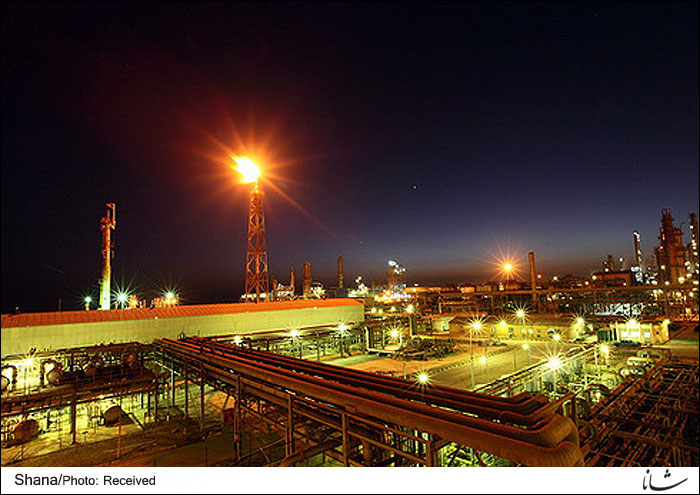[caption id="attachment_144354" align="alignright" width="221"] Iran's Ghadir Petrochemical Company[/caption]
Iran's Ghadir Petrochemical Company[/caption]
Tehran, March 17, IRNA -- The private sector is investing $3 billion to build the Parsian Petrochemical Complex in the Parsian Energy Intensive Industrial Zone in Fars Province. The complex will have eight production units.
In a contract with the Iranian Mines and Mining Industries Development and Renovation Organization (IMIDRO), Pasargad Energy Development Company (PEDC) will build the complex over an estimated area of 160 hectares, IMIDRO reported.
PEDC, a subsidiary of Bank Pasargad, started operations in 2008 as a major investor in the energy sector, especially hydrocarbon industries. It has undertaken several domestic and overseas projects including exploration, development and extraction from oil and gas fields, establishment of oil and gas refineries and petrochemical units, and construction of power plants.
The complex is planned to receive 20 million cubic meters of gas per day as feedstock to produce several petrochemicals such as propylene and methanol.
Parsian will be the first petrochemical complex in Iran to implement natural gas-to-propylene conversion technology. Propylene is a colorless fuel gas, extremely flammable and non-toxic. The chemical and plastics industries widely rely on propylene as a fuel gas.
The Parsian complex is emerging as an attractive investment opportunity for foreign companies, according to PEDC managing director, Mehdi Mir-Moezzi. It is estimated to generate $2.4 billion in annual revenues when its production capacity reaches 11 million cubic meters per year.
The Parsian energy zone, similar to the Lamerd Energy Intensive Industrial Zone in the province, will feed on South Pars oil and gas field in the Persian Gulf.
South Pars is the world's largest gas field, shared between Iran and Qatar, covering an area of 3,700 square kilometers of Iran's territorial waters in the Persian Gulf. It adjoins Qatar’s North Field, which measures 6,000 square kilometers.
The energy zone is slated to transform into a hub for petrochemicals, steel, aluminum and cement within a decade. It is also expected to create thousands of jobs, renovate the socio-economic situation of the south and bring in millions in foreign exchange.
IMIDRO policies stipulate that the mega infrastructure projects, such as water, gas and electricity, should be financed and implemented by private firms. IMIDRO is a state-owned organization involved in energy and mining exploration and extraction as well as construction, production and renovation projects.
By IRNA

 QR code
QR code